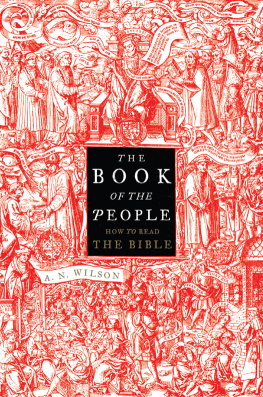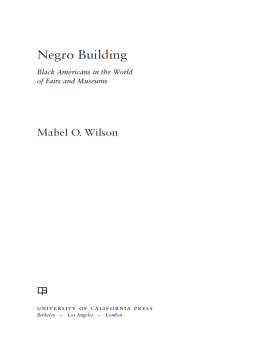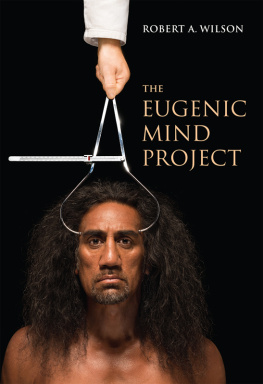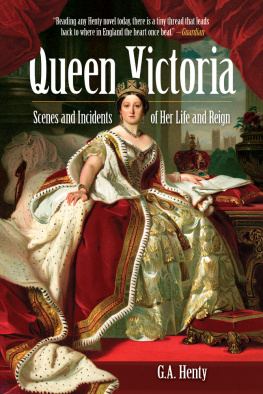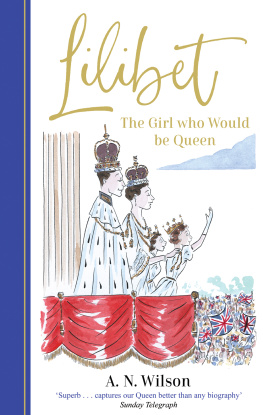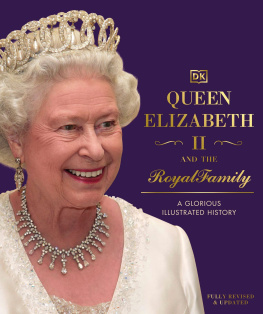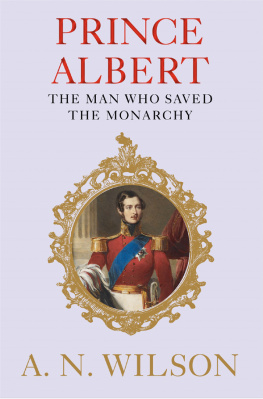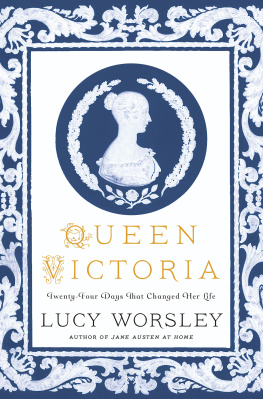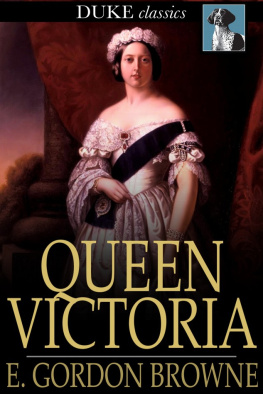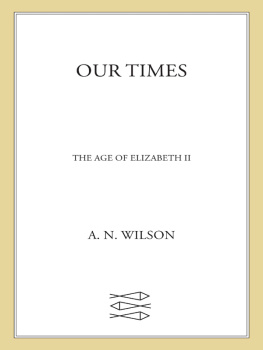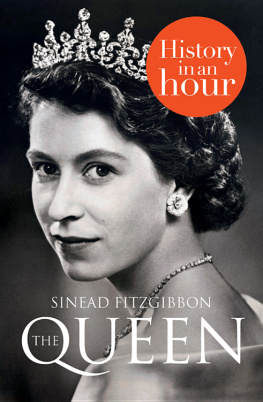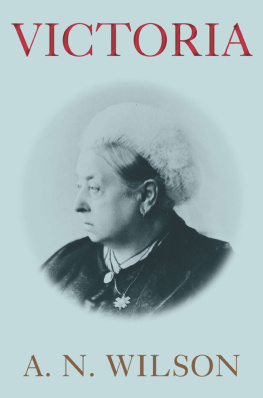For M
CONTENTS
IN PRAISE OF DULLNESS
I dont fully understand her, but thats part of her secret
ROBERT RUNCIE
T he great achievement of Elizabeth IIs grandfather, King George V, was to make the British monarchy dull. There had been some danger, during the short reign of his father, Edward VII, that things might get interesting. Not only had Edward the Caresser lived a shameless life, with mistresses galore, but he had also openly and independently indulged in European politics. The Entente Cordiale between his country and France was largely his creation, locking Great Britain into treaty obligations about going to war in the event of another conflict between France and Britains natural allies and cousins the Germans that had catastrophic consequences. His diplomatic trip to Paris in 1903 was the last visit abroad by a British sovereign undertaken without ministerial approval.
Yet, the enormous crowds who filled the streets of London to see their King Emperor on that day moved him, and for he was a modest man surprised him. That night, broadcasting to the nation via the relatively new-fangled invention of the wireless, he said, in his strange, cocknified voice, I can only say to you, my very dear people, that the Queen and I thank you from the depth of our hearts for all the loyalty and may I
It was all the more moving, because this socially awkward sailor-king was not one to wear his heart on his sleeve. For twenty-five years, he had done his duty, gone through the motions of office. He and Queen Mary were, quite simply, adored by the British people, and by the people of the British Empire. His grand-daughter, who became Queen Elizabeth II, used to call him Grandfather England. It was an appropriate nickname. He was an embodiment, and that is what a successful constitutional monarch can be. It is not yet possible to know how closely Elizabeth II has been involved with the political crises of her reign. For instance, what did she have to say to Tony Blair about the banishment of most hereditary peers from the House of Lords, and the failure of his Government to find a satisfactory way of selecting members of a Second Chamber. We know that George V was, willy nilly, involved in the Constitutional Crisis of 190911 basically caused by the conflict between the strong Liberal Commons and the largely Conservative and Unionist Lords, who clashed over both Ireland and the Budget. The threat to create 500 Liberal peers to outvote the Tories in the Lords was one that George V rejected, but he was forced to accept the Parliament Bill, 1910, which made it impossible thereafter for the Lords to
In December 1910, Asquith sent a memo to George V that set out in no uncertain terms that the era of monarchical power was definitely over:
The part to be played by the Crown has happily been settled by the accumulated traditions and the unbroken practice of more than seventy years. It is to act upon the advice of Ministers who for the time being possess the confidence of the House of Commons, whether that advice does or does not conform to the private and personal judgement of the sovereign. Ministers will always pay the utmost deference, and give the most serious consideration, to any criticism or objection that the Monarch may offer to their policy; but the ultimate decision rests with them; for they, and not the Crown, are responsible to Parliament.
At the other end of George Vs reign when, the Liberal Party in tatters, the first Labour Government had been voted in, George, one of the most natural Tories imaginable, had been obliged to oversee the crisis caused by the financial collapse of 1934, and the choice facing the Labour Party of voting to cut unemployment benefit or going bankrupt. The other parties expressed their willingness to serve in a National Government under Ramsay MacDonald, and this was the option favoured by King George. It destroyed MacDonald in the eyes of his party, and confirmed many Labour supporters in their republican instincts.
All this was to show that a constitutional monarch is not just a ceremonial figurehead. Though George V had no executive power, he did have a role, and it was one that history showed to have been that of a broker between differing political sects. He, for example, had chosen Baldwin as Conservative Prime Minister rather than Curzon, in 1923. He knew, however, that he must tread gently. Indeed, George Vs obsession with the Russian Revolution was undying, and one of his great dreads, when there was a Labour Government in power, was that they, his Socialist ministers, would make him shake hands with those who had murdered his relatives, that is, the new Soviet diplomats in London.
George V, who so terrified his sons, was also their political role model. It was the model which his son David Edward VIII was unable to follow, but the example of George V and Queen Mary was the tried and trusted role model for George VI and Queen Elizabeth, and for Queen Elizabeth II and Prince Philip, when their moments came.
From early childhood, Elizabeth Lilibet as she was known to her parents had a close rapport with old King George V. Whereas others were terrified of the Kings bad temper, she spoke to him with Cordelia-like directness. When he did a little drawing to amuse her, she responded, You really are not at all a bad drawer.

The decade of her birth was not a happy time to be a monarch. Just eight years before Elizabeth II was born, on 21 April 1926, her cousin the Emperor of Russia, his wife and his five teenage children, two servants and the family doctor were taken to a cellar in Ekaterinburg by Bolshevik revolutionaries, and done to death with revolvers and bayonets. In the same year, her cousin the German Emperor, Wilhelm II in whose loving arms his grandmother Queen Victoria had died on the Isle of Wight in 1901 abdicated the German throne, and went into exile in The Netherlands, where he lived until his death in 1941. There had been loud cries in Britain to have him hanged as a war criminal. In the same year as Wilhelms Abdication, the last Emperor of Austria, the saintly Karl, was deposed. Even as Elizabeth was being born, Britain was in the grip of the General Strike, in which the middle and upper classes feared that the working classes would, unless robustly opposed, impose Communism in the United Kingdom. They were heady, miserable, times. The poor were really poor unimaginably poor by the standards of early twenty-first-century Europe. Children in London had rickets, and lived on starvation rations.
The last years of the Russian monarchy had been a tragic melodrama. The Austro-Hungarian Empire, which was in some respects the surviving remnant of the Holy Roman Empire itself, was the ancien rgime embodied in the figurehead of its Emperors, whose latter days had been marked, as had their Russian counterparts, by the excitement of assassination attempts and political extremism. The Wilhelmine regime in Germany was likewise technicoloured and dramatic.
The comparative boringness of the British court was an essential part of the success story of constitutional monarchy. That is why I began by emphasizing it. The dullness inspired Sir Max Beerbohm, that 1890s wit who lived out of time in the twentieth century, to write his famous Ballade Tragique Double Refrain:
SCENE: A Room in Windsor Castle. |
TIME: The Present |
Enter a Lady-in-Waiting and a Lord-in-Waiting |
SHE: | Slow pass the hoursah, passing, slow! |
My doom is worse than anything |


